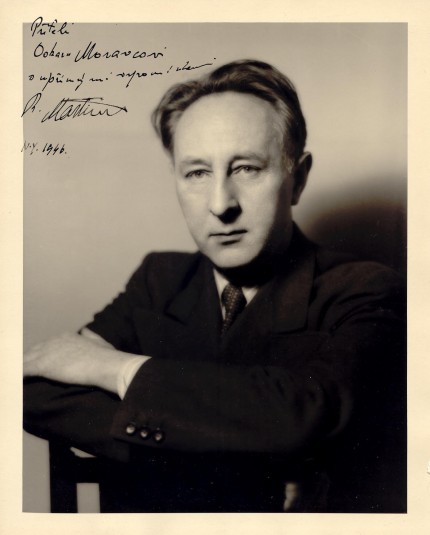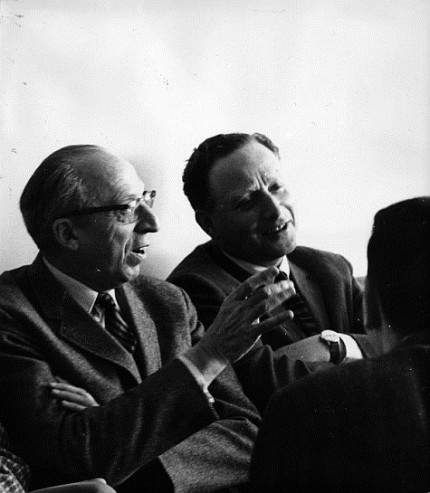The enterprising Chicago Ensemble serves up 20th-century rarities along with Bach and Brahms
Among the city’s myriad of chamber music groups, one has to give The Chicago Ensemble credit for both longevity and enterprise. Currently in its 32nd season, The Chicago Ensemble presents uncommonly civilized and intelligent programs that deserve to find a wider audience for its bivalved Near North and Hyde Park series.
Pianist and artistic director Gerald Rizzer always manages to strike an artful balance between familiar works and deserving underplayed repertoire, and such was the case again Sunday afternoon. A pair of popular works by Bach and Brahms were the main draws, but it was the two rarities that provided most interest at St. Paul the Redeemer Church in Hyde Park.
Bohuslav Martinu remains one of the most inexplicably neglected of all 20th-century composers so kudos to Rizzer and company for offering one of the prolific Czech’s works with his Madrigal Sonata.
While it may not be one of his most substantial chamber efforts, the trio for flute, violin and piano is crafted with Martinu’s characteristic skill and melodic flair. Flutist Susan Levitin, violinist Stephen Boe and pianist Rizzer made a convincing case for this music, conveying the lively neo-Baroque bustle of the opening movement. Levitin floated a graceful line in the central section’s long-limbed flute melody, and the three brought admirable verve to the rapidly alternating notes of the finale.
Irving Fine’s Fantasia for string trio was written in 1959, the year Martinu died, and, while there is no connection to that event, the Fantasia does seem imbued with a decidedly valedictory expression. Championed by Bernstein and Copland during his short lifetime, Fine’s music blends Neo-Classical, Romantic and serial elements, yet there is a strong communicative thrust palpable in all of the Boston native’s works. Unfortunately Fine died at 47, just as he seemed to be finding his own compositional voice.
Fine’s modified 12-tone style is manifest in this tripartite work, with two slow sections flanking a restless scherzo. Violinist Mathias Tacke, violist Paul Vanderwerf and cellist Andrew Snow brought tautly focused advocacy to the winding elegiac opening theme, and forcefully put across the dynamic urgency of the driving, sharply accented scherzo. The ensemble was superb in the dark introspection of the Lento finale with powerfully expressive playing by all, particularly Tacke, that starkly conveyed the searching melancholy.
Bach’s music is true titanium, emerging untouched no matter what the treatment or arrangement. Indeed, the Chicago Ensemble members gave such a buoyant and idiomatic account of the Suite No. 2 that one hardly missed the orchestra. Rizzer’s discreet piano provided worthy continuo support and while one sometimes would have liked a richer flute tone from Levitin, she managed most of the hurdles deftly, bringing reflective expression to the Sarabande and tossing off a whirlwind Badinerie.
Just three weeks ago, and eight blocks south of St. Paul’s, audiences heard a memorable performance of Brahms’ Piano Quintet served up by Peter Serkin and the Orion String Quartet at Mandel Hall.
While not quite on that level of technical finish and dynamic muscle, the Chicago Ensemble’s performance was still a very fine, well balanced one, with especially stellar playing by first violinist Boe. Only the Andante proved a bit of a letdown with a brisk, literal approach that missed some of the music’s hushed inwardness. Still, the players brought majestic power to the Scherzo’s striding main theme and—some wayward viola intonation apart—rounded off the performance and the afternoon with an exciting account of the unbridled finale.
The program will be repeated 7:30 p.m. Tuesday at Fourth Presbyterian Church. www.thechicagoensemble.org
Posted in Uncategorized




